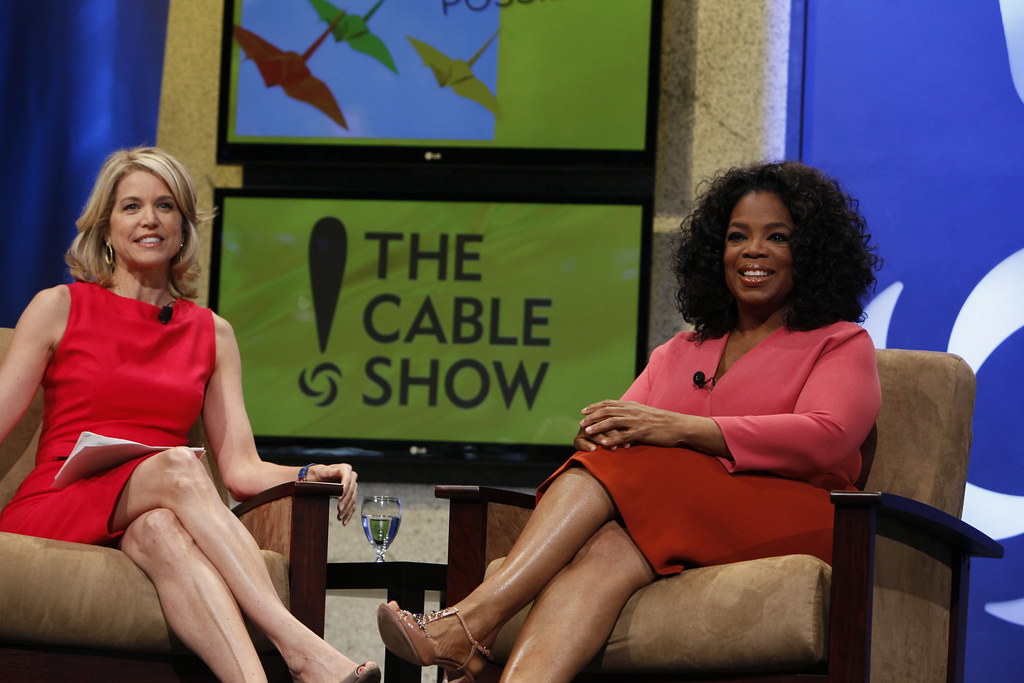
The assassination of conservative activist Charlie Kirk at Utah Valley University on September 10, 2025, sparked a torrent of public discussion, speculation, and, notably, a wave of misinformation. This tragic event, occurring during a ‘Prove me Wrong’ table event where Kirk debated attendees, quickly became a flashpoint for intense scrutiny, not only into the alleged motives of the suspect but also into the integrity of information circulating across various platforms.
In the immediate wake of Kirk’s death, an unfounded rumor began to spread on the internet concerning pop superstar Kelly Clarkson. A social media claim, originating from a Facebook page with over 46,000 followers, asserted that Clarkson had severed ties with brands supporting LGBTQ+ causes. This report, which quickly went viral, claimed her decision was prompted by revelations regarding Charlie Kirk’s suspected assassin’s connection to the LGBTQ+ community, an assertion that required immediate journalistic attention and fact-checking.
This article delves into the specifics of this incident, meticulously examining the origins of the misinformation, the factual corrections that followed, and the broader context of media reporting surrounding such sensitive events. It aims to dissect the layers of claims and counter-claims, providing a clear, accurate account based solely on verified information, adhering to journalistic principles of objectivity and factual accuracy in a complex and often emotionally charged environment.
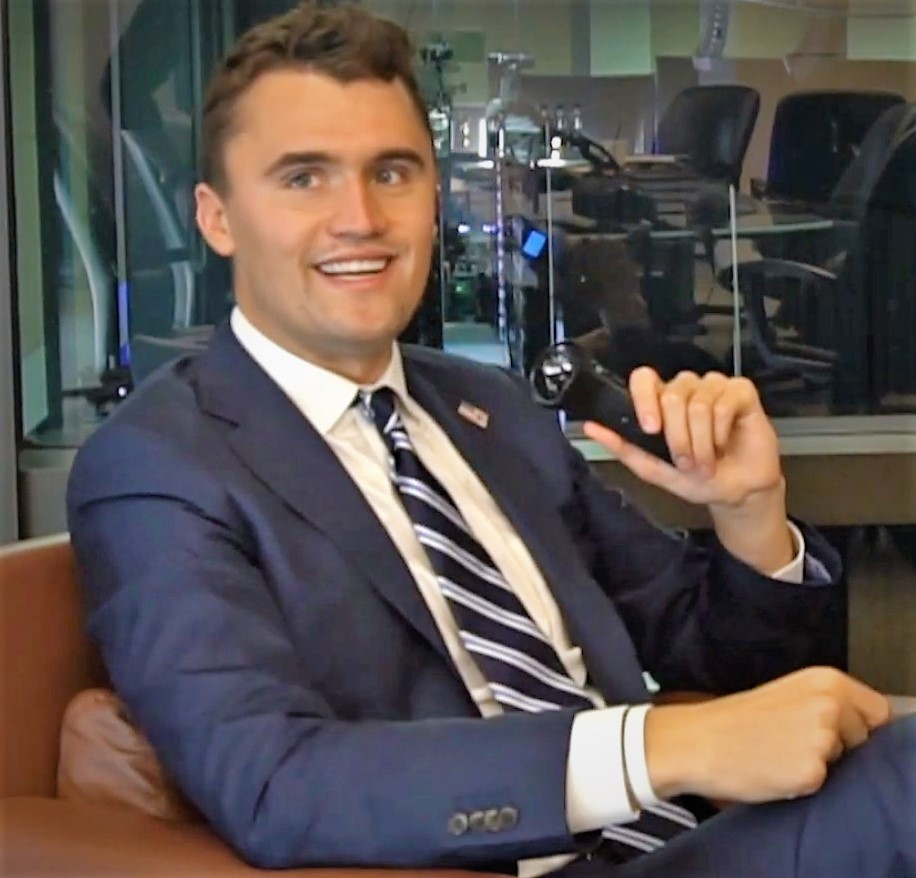
1. **The Unfounded Kelly Clarkson Rumor**A new unfounded rumor about Kelly Clarkson surfaced on the internet recently, claiming the American Idol Season 1 winner severed ties with brands backing LGBTQ+ causes. This report, disseminated by a Facebook page named Latest News, with over 46,000 followers, quickly gained traction, presenting itself as a factual development in the aftermath of Charlie Kirk’s assassination.
The original post alleged that the ‘Chemistry’ singer-songwriter’s decision was directly prompted by Charlie Kirk’s suspected assassin’s connection to the LGBTQ+ community. To lend credibility to its claims, the viral Facebook post included an untrustworthy third-party link, purporting to corroborate the assertions made about Kelly Clarkson’s actions and motivations.
However, like many viral rumors that emerge after significant, high-profile events, this social media report about the ‘Meaning of Life’ artist was fabricated. There is no evidence supporting the assertion that Kelly Clarkson cut ties with any brands supporting LGBTQ+ causes due to certain revelations about the Charlie Kirk murder suspect. This claim was thoroughly debunked by fact-checking websites, highlighting the prevalence of misinformation in digital spaces.
Kelly Clarkson herself has neither reacted to this specific news nor has she backed away from supporting LGBTQ+ causes, reinforcing the fabricated nature of the claim. Furthermore, it was not the only piece of fake news circulating about the artist; another social media rumor falsely claimed she paid a tribute to Kirk, which was also debunked by Lead Stories, a fact-checking website, days prior.
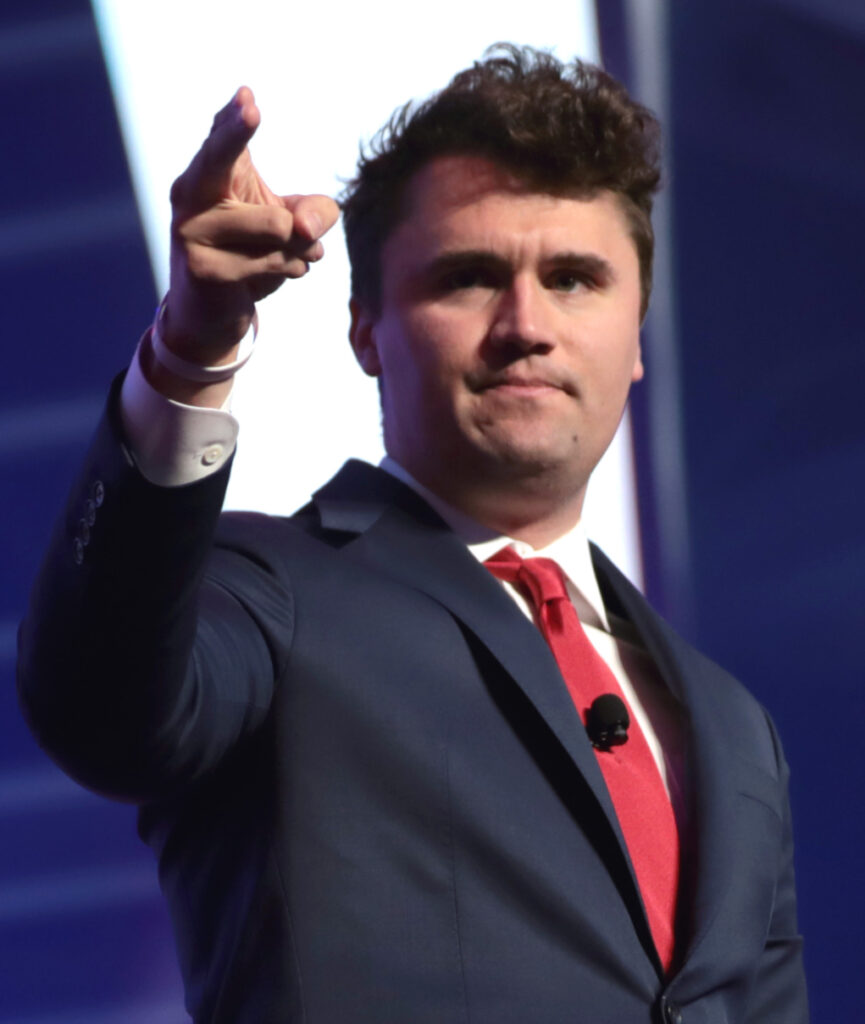
2. **Charlie Kirk’s Assassination and His Controversial Views**Charlie Kirk, a prominent conservative activist and founder of Turning Point USA, was assassinated on Wednesday, September 10, 2025, while on stage at a public event at Utah Valley University. The incident occurred during a stop on his “American Comeback Tour” as he was taking questions from an audience. A single shot was reportedly fired from a distant rooftop, striking him in the neck, and he was pronounced dead at the age of 31.
This tragic event unfolded against the backdrop of Kirk’s well-documented and often controversial views on various social issues. He was a defining voice for a new generation of conservative activists, championing Trumpism, attacking LGBTQ rights, railing against immigration, and amplifying culture war rhetoric that garnered him both loyal followers and passionate detractors.
Kirk had publicly stated views that were in opposition to LGBTQ rights, openly opposing gay marriage and referencing what he called an “LGBTQ agenda” that he claimed aims to “corrupt your children.” His stance was seen by some as part of a broader strategy of “sowing and exploiting fear that white Christian supremacy is under attack by nefarious actors, including immigrants, the LGBTQ+ community and civil rights activists.”
He frequently engaged in public debates on college campuses on topics including the LGBTQ+ community, gender, and . For example, at a University of Florida debate, Kirk argued that most transgender women are men with “autogynephilia,” a claim that has been disproved by research. At a University of Wisconsin-Madison event, he notably told a gay conservative student, “I don’t agree with your lifestyle,” underscoring his publicly expressed positions.
Read more about: Hollywood Speaks Out: Jason Bateman Leads the Charge as Jimmy Kimmel Live! Faces Indefinite Hiatus Amid Free Speech Battle

3. **Tyler Robinson: The Suspected Assassin and Alleged Motive**Authorities arrested Tyler Robinson, 22, for allegedly killing Charlie Kirk. Robinson turned himself in on September 11, after a 33-hour multi-agency manhunt. President Trump publicly announced the suspect’s capture on Fox News’ “Fox & Friends,” stating, “We have him.”
Charging documents allege that Robinson targeted Kirk because of “Robinson’s belief or perception regarding Charlie Kirk’s political expression.” According to authorities, Robinson communicated his intentions to his roommate via text, stating, “I had enough of his hatred. Some hate can’t be negotiated out.” This message points to a strong personal or ideological motivation behind the alleged crime.
Prosecutors in Utah appear to be preparing to argue that Robinson killed Kirk because he disagreed with Kirk’s anti-trans rhetoric. The amount of information shared with the public at this early stage of the investigation is unusual and could potentially complicate jury selection, as noted by legal experts.
Robinson was charged with aggravated murder, felony discharge of a firearm, obstruction of justice, and witness tampering. Utah County Attorney Jeff Gray has publicly stated that he would pursue the death penalty in the case, indicating the seriousness with which authorities are treating the alleged crime. Kirk’s funeral was scheduled for Sunday, September 21, with former President Trump slated to attend.
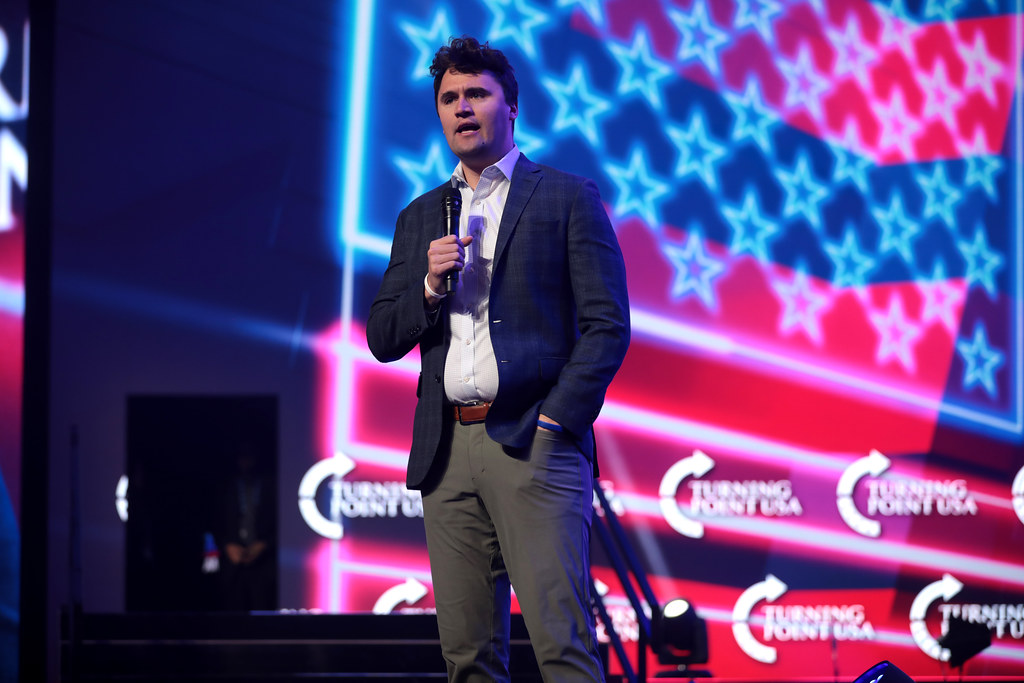
4. **The Role of Robinson’s Transgender Roommate/Partner**A significant detail confirmed by Utah Governor Spencer Cox during an interview with Fox News earlier this month concerned Tyler Robinson’s roommate. Governor Cox stated that Tyler Robinson, the man suspected of being Kirk’s assassin, was in a romantic relationship with his roommate, who is reportedly transitioning from male to female. Cox clarified, “We do know that the roommate that we had originally talked about, we can confirm that that roommate is a boyfriend who is transitioning from male to female.”
This detail was also supported by law enforcement sources who told The Post that Robinson was in a relationship with a live-in boyfriend who was transitioning from male to female. Furthermore, Governor Cox also stated on CNN’s “State of the Union” that investigators are looking into whether this relationship could have been a motive for the alleged shooter.
Crucially, authorities have confirmed that the roommate, identified as Lance Twiggs, has been “incredibly cooperative” with authorities. Governor Cox emphasized that Twiggs, who has not been accused of any involvement in the crime, “had no idea this was happening and is working with investigators right now,” dispelling any notions of complicity on their part.
Robinson’s mother also told police that her son was in a romantic relationship with his transgender roommate, though the roommate’s identity had not been publicly confirmed by that point. This information emerged as investigators sought to understand Robinson’s background and potential influences. According to the charging document, Robinson’s mother told investigators that he had become more “pro-gay and trans-rights oriented” within the last year, providing additional context to his evolving views.
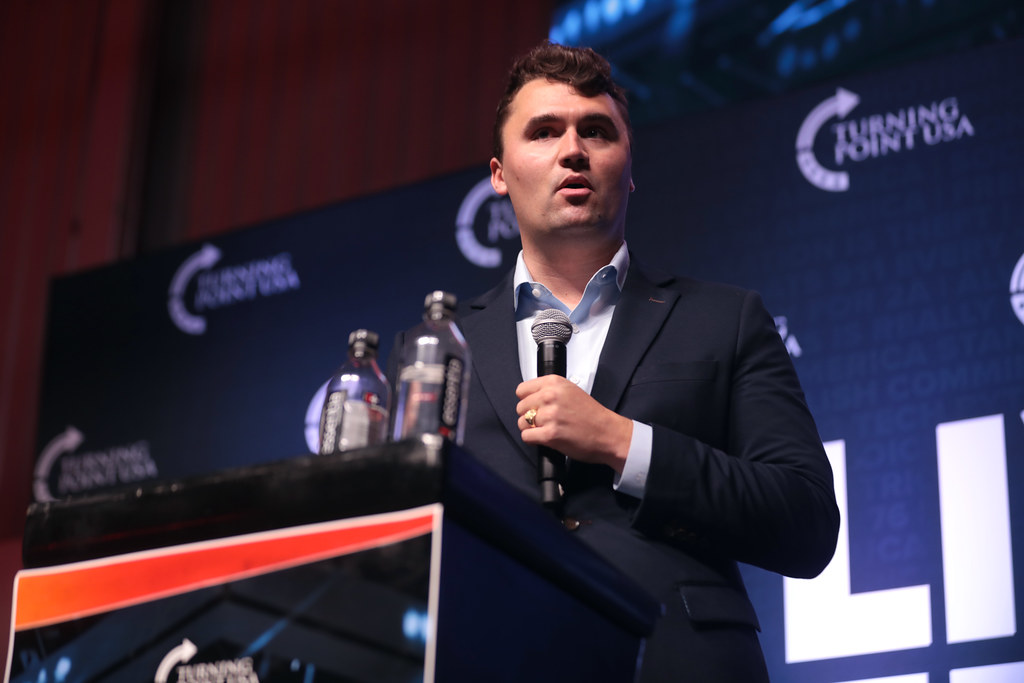
5. **Kelly Clarkson’s Long-Standing LGBTQ+ Advocacy**Contrary to the baseless rumors suggesting a shift in her stance, Kelly Clarkson has been a consistent and vocal advocate for the LGBTQIA+ community throughout her career. Her allyship has been demonstrated through various mediums, including her music and public statements, underscoring a long-standing commitment to inclusivity and support.
Two of her music videos, for the tracks ‘Tie it Up’ and ‘Heartbeat Song,’ are particularly well-known for explicitly depicting same- couples, offering positive representation and normalizing LGBTQ+ relationships within mainstream media. These visual affirmations align with her consistent public support for the community.
In 2018, Clarkson also directly addressed and countered homophobic comments on social media. After a Twitter user shared a wedding picture with her wife and tagged Kelly, who responded with, “Congrats you two!! 😊❤️ 👰,” a hater replied, “Sorry Kelly…. love your music but I don’t dig the d****…still a sin any way you cut it.”
Clarkson gave a dignified and powerful response by quoting the hater’s tweet, stating, “I almost didn’t respond 2 this because hate doesn’t deserve a spotlight but u know what, truth does, & the truth is that God is Love, & Love shared between two people should be praised not condemned in my personal opinion. I love u 2 although we see the world/love differently.” This public defense solidified her position as a staunch ally.
More recently, earlier this year, Kelly Clarkson garnered widespread admiration for her gender-flipped cover of ‘Your Love’ by The Outfield. In her rendition of the 1985 hit, the singer kept the lyrics as-is, using Josie’s original name and pronouns, even winking while singing lines such as “Josie’s on a vacation far away / Come around and talk it over / So many things that I wanna say / You know I like my girls a little bit older / I just wanna use your love tonight / And I don’t wanna lose your love tonight.” This ‘Kellyoke’ moment from a February 2025 episode of The Kelly Clarkson Show went viral, according to Out.com, further cementing her reputation as an outspoken and authentic LGBTQ+ supporter.
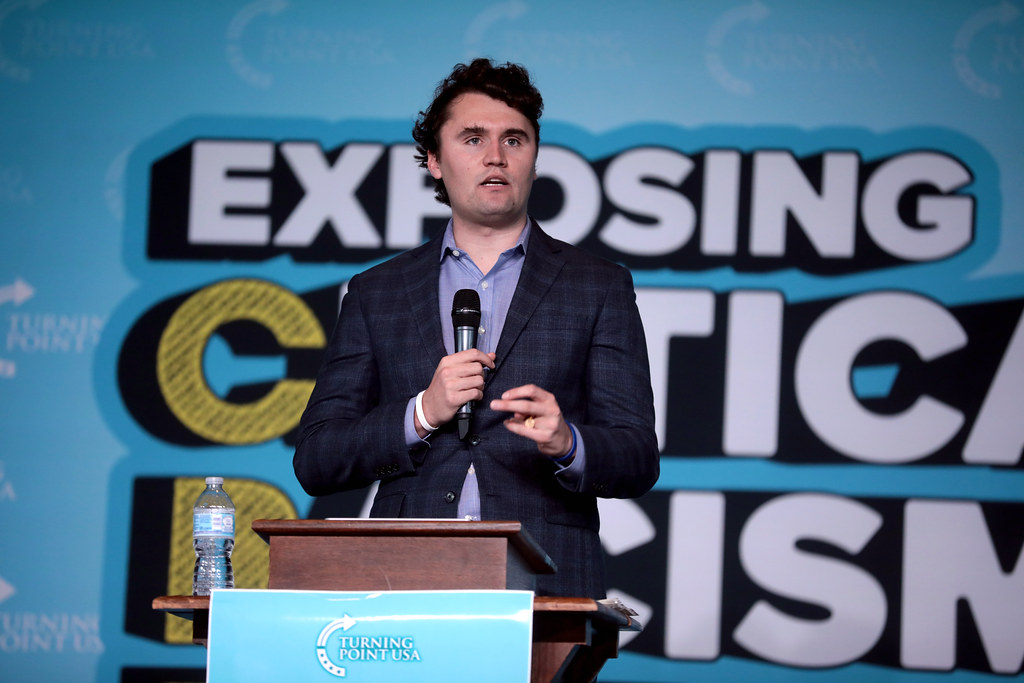
6. **Initial Misinformation and Rapid Debunking**In the chaotic hours and days immediately following Charlie Kirk’s assassination, a flurry of unverified information and rumors began to circulate rapidly across the internet. Early reports incorrectly linked the suspected shooter, Tyler Robinson, to the transgender community. These claims were often based on unvetted social media accounts, anonymous chatter, and early, unconfirmed law enforcement bulletins.
One particularly prominent and later-corrected report suggested that ammunition used in the shooting had messages related to the transgender community engraved into it. However, close inspection and subsequent official reports revealed that the messages were instead anti-fascist and referenced online meme culture, directly refuting the initial transgender-related claim. This demonstrates the speed at which false details can spread and be misconstrued.
Several media outlets, including The Wall Street Journal and The New York Post, published initial reports citing ‘sources’ that linked Kirk’s killing with ‘transgender and antifascist ideology.’ The Wall Street Journal, in particular, took a hardline approach to publishing this early, unvetted information, going as far as to claim a direct link to the shooter and the transgender community in an article that the Human Rights Campaign (HRC), the largest LGBTQ rights advocacy group, later demanded be taken down.
By the time an editor’s note was issued—and the story was not removed as HRC had requested—the narrative had already taken root. This swift, yet inaccurate, dissemination of information reinforced damaging stereotypes and provided what some perceived as ‘fresh ammunition’ for far-right figures to escalate their ongoing campaign of anti-trans rhetoric, highlighting a critical failure in journalistic diligence during a sensitive period.
Read more about: Fact Check: Debunking the Mick Jagger Charlie Kirk Tribute Hoax in New York City
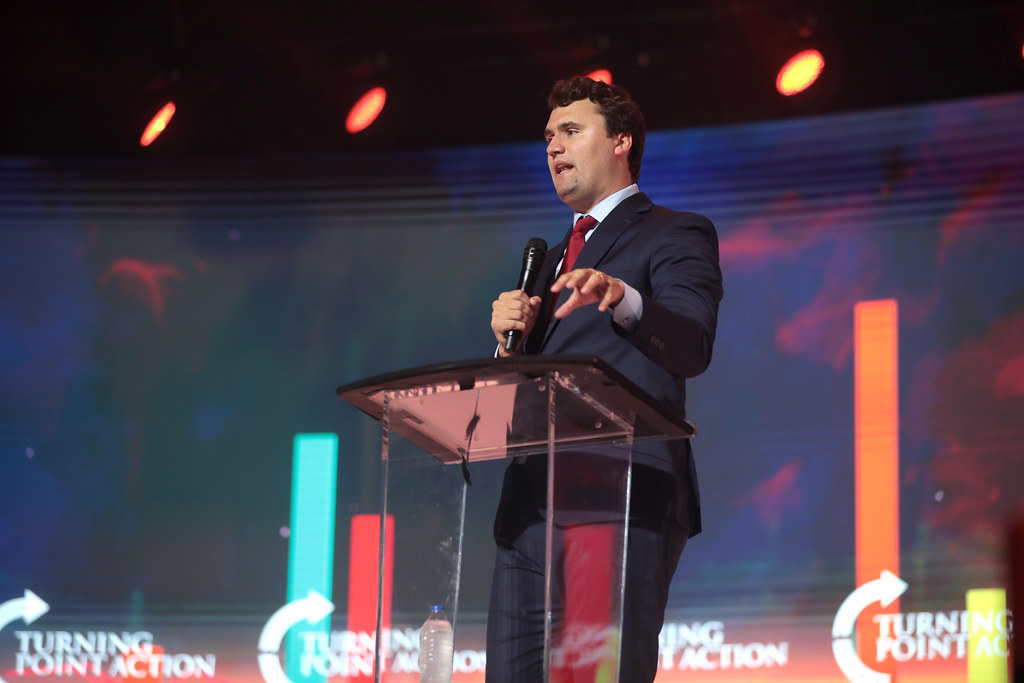
7. **The Broader Pattern of Misinformation Linking Trans Individuals to Shootings**The pattern of misinformation that emerged after Charlie Kirk’s death, falsely linking the suspected shooter to the transgender community, is not an isolated incident. This phenomenon has repeatedly played out in the wake of major shootings over the last few years, demonstrating a disturbing trend in how initial, unverified information can shape public perception and fuel harmful narratives.
Before authorities even release definitive information about a suspect, politicians and commentators often put forward conspiracy theories suggesting the attacker was transgender. These theories are almost always debunked by official investigations, yet their initial spread can have lasting and damaging effects on the transgender community.
For instance, misinformation about previous shootings resurfaced in recent weeks, concurrent with the Kirk assassination. Social media lists incorrectly claimed that the suspect in the 2022 Uvalde school shooting, which resulted in the deaths of 19 students and two teachers, was transgender, when in fact, he was not. Another example involved a shooting in Philadelphia, where an elected official suggested the suspect identified as trans, a claim police later contradicted, according to NBC News.
Mark Bryant, executive director of the Gun Violence Archive (GVA), noted that he started observing this trend of online comments linking shooters to the trans community after a 2023 school shooting in Nashville. These events collectively illustrate a recurring and problematic pattern where, in the absence of concrete information, a vulnerable community is often targeted by speculative and often malicious rumors, diverting attention from the actual causes of violence.
Read more about: The Complex Persona of Marjorie Taylor Greene: Examining Her Political Path and Controversial Public Profile
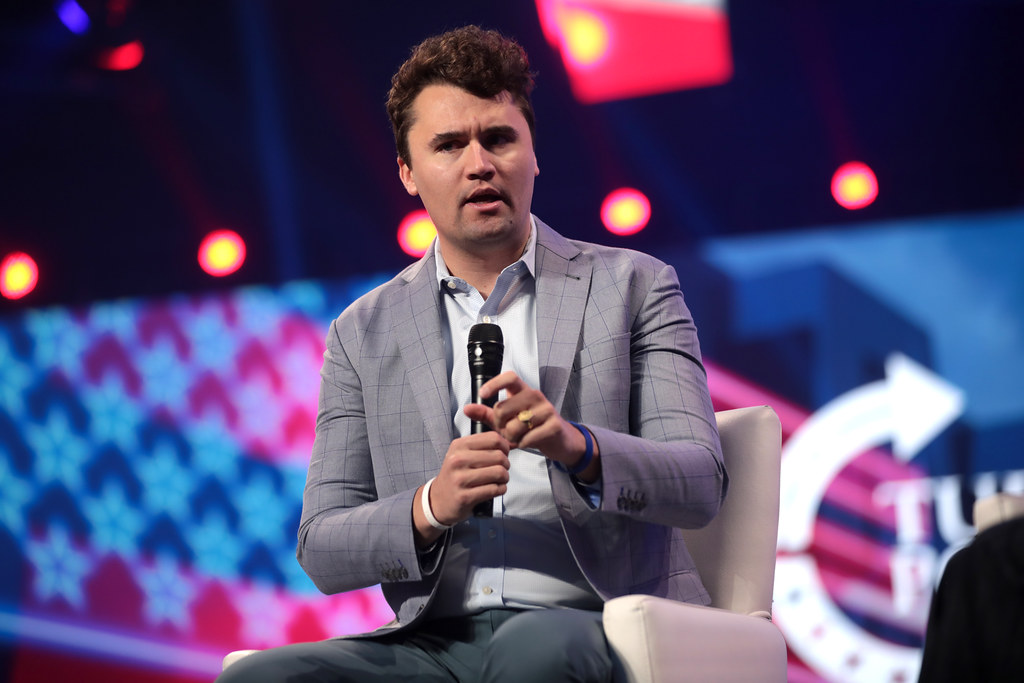
8. **The Scapegoating of the Transgender Community**Following the assassination of conservative activist Charlie Kirk, the rapid spread of misinformation falsely linking the suspected shooter to the transgender community underscored a persistent and damaging societal trend. This pattern, as observed in previous high-profile incidents, exemplifies how vulnerable communities are often unjustly targeted by speculative and, at times, malicious rumors. Such narratives not only divert attention from the actual causes of violence but also significantly exacerbate existing prejudices.
This phenomenon is not merely an online anomaly; it is often amplified by some public figures. For instance, Rep. Ronny Jackson, R-Texas, stated in a Newsmax interview on September 16 that transgender people are a “virus” and a “cancer that’s spreading across this country,” advocating for them to be “off the streets” and “off the internet.” Such rhetoric, broadcast across media platforms, contributes to an environment where misinformation thrives and can be weaponized against an already marginalized group.
The consistent linking of transgender individuals to violence, often without factual basis, creates a public perception that is both skewed and dangerous. This “otherization” of the trans community is not just a rhetorical exercise; it has tangible consequences, including increasing harassment, fueling physical violence, and deepening public misunderstanding of transgender lives. It actively undermines efforts for equality and safety, reinforcing negative stereotypes that have long been used to justify discrimination.
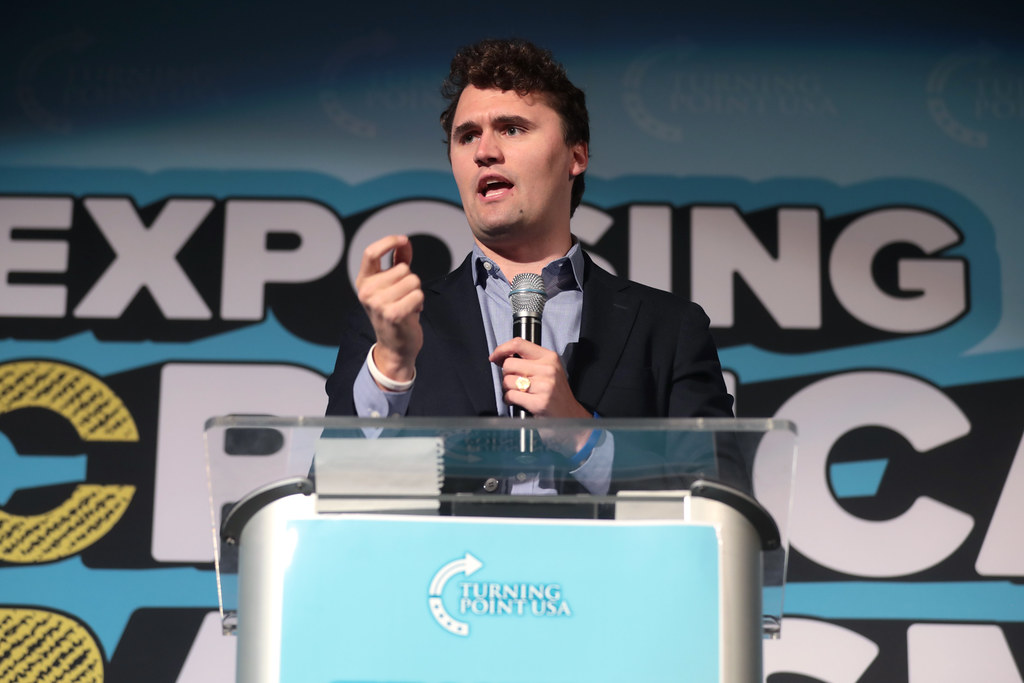
9. **Statistical Realities vs. Misinformation on Transgender Shooters**The final public debate Charlie Kirk engaged in, moments before his assassination, involved a question directly related to the prevalence of transgender individuals as mass shooters. An attendee identified by the Salt Lake Tribune as 29-year-old UVU student Hunter Kozak asked, “Do you know how many transgender Americans have been mass shooters over the last 10 years?” Kirk responded, “Too many,” before the questioner provided a figure of five and inquired about the total number of mass shooters. This exchange highlights how the topic of transgender individuals and violence was already a point of public discussion, even as misinformation about such statistics proliferated.
Official data provides a stark contrast to the often-inflated claims circulating online. According to the Gun Violence Archive (GVA), since 2015, there have been 5,221 mass shootings. In this context, the GVA has recorded five transgender individuals as mass shooters over the last 10 years, meaning they account for approximately 0.1% of these incidents. When considering all deaths, including political or domestic violence since 2018, 22 perpetrators were known to be transgender out of approximately 450,000 shootings, accounting for about 0.005%.
These figures stand in sharp contrast to the demographic representation of transgender people in the United States. Approximately one percent of individuals over the age of 13 identify as transgender, according to the Williams Institute at UCLA School of Law. The statistical reality reveals that transgender individuals are involved in an exceedingly small percentage of gun violence incidents, particularly mass shootings, making the persistent targeting of this community in discussions about violence demonstrably unfounded.
Moreover, analyses, such as those by Reuters, indicate that most mass shootings or violent gun deaths in the U.S. are carried out by cisgender men—individuals whose gender identity aligns with their assigned at birth. This factual discrepancy underscores how the focus on linking transgender individuals to violence often serves to distract from the broader, systemic issues of gun violence in America, rather than providing an accurate understanding of its perpetrators.
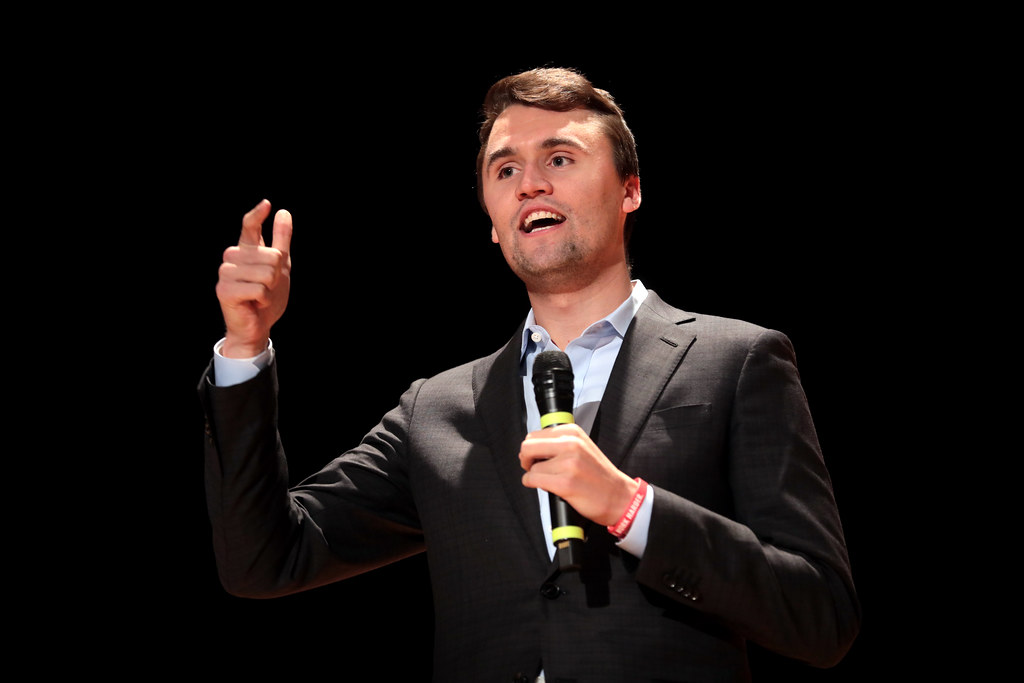
10. **The Role of Media Responsibility and Ethical Reporting**In the chaotic aftermath of Kirk’s assassination, the media’s role in verifying and reporting information became critically important, yet it also exposed significant lapses in journalistic ethics. Early reports from several outlets, including The Wall Street Journal and The New York Post, cited “sources” that linked Kirk’s killing with “transgender and antifascist ideology.” The Wall Street Journal specifically took a “hardline approach to publishing this early, unvetted information,” going “as far as to claim a direct link to the shooter and the transgender community in an article that the Human Rights Campaign (HRC), the largest LGBTQ rights advocacy group, later demanded be taken down.”
The National Association of LGBTQ+ Journalists (NLGJA) weighed in on this critical issue, with President Ken Miguel stating that “the desire to be first sometimes gets in the way of being fair and accurate.” He emphasized that “sharing unsubstantiated claims breaks one of journalism’s core ethical principles: do no harm.” The NLGJA further highlighted that terms such as “transgender ideology” are “rooted in political rhetoric, not neutral descriptions of identity,” and require careful handling with clear attribution and context to avoid reinforcing harmful stereotypes.
Despite an editor’s note being issued by The Wall Street Journal—and the story not being removed as requested by the HRC—the inaccurate narrative had already taken root. This swift, yet unvetted, dissemination of information reinforced damaging stereotypes and provided what some perceived as “fresh ammunition” for far-right figures to escalate anti-trans rhetoric. Such actions represent a profound failure of journalistic diligence during a highly sensitive period, demonstrating the immense power of media to shape, or distort, public perception.
Cathy Renna, longtime communications director for the National LGBTQ Task Force, articulated this frustration, noting that instead of focusing on gun violence, too many extremist voices “pounce on the opportunity to falsely smear vulnerable communities.” This approach, she argued, is not just poor reporting but actively “does real harm to people who are already vulnerable,” shifting blame from systemic issues to marginalized groups.
Read more about: Marian Burros, Influential Food Writer and Consumer Advocate, Dies at 92, Leaving a Legacy of Investigative Journalism and Culinary Classics
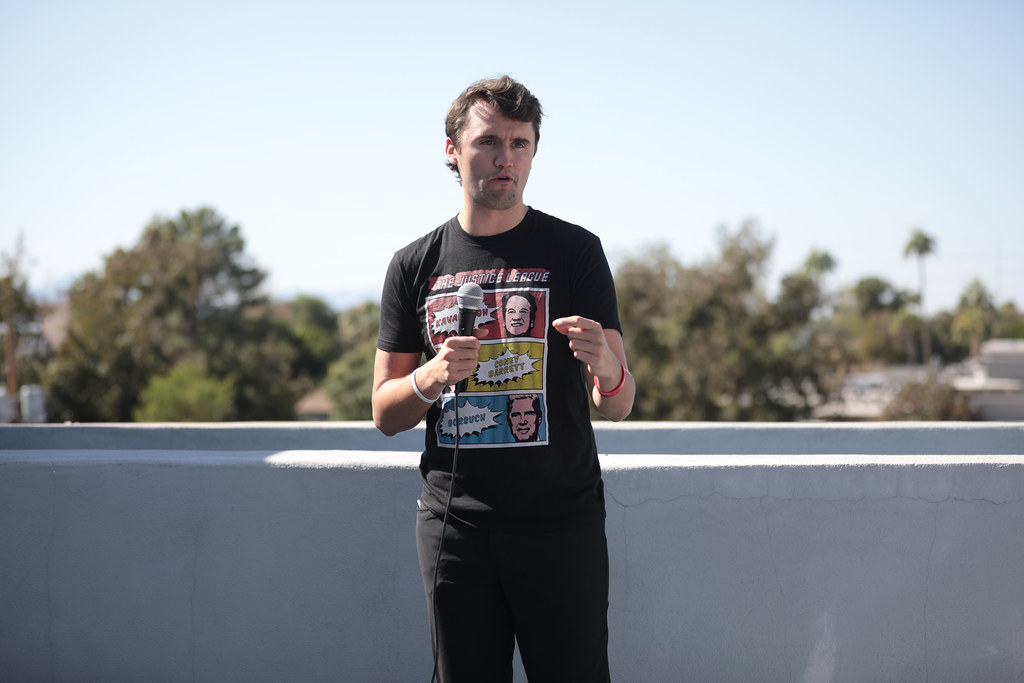
11. **The Dangerous Consequences of Anti-Trans Rhetoric and Disinformation**The persistent drumbeat of disinformation, particularly the false link between transgender individuals and mass shooters, carries grave consequences for the transgender community. As Imara Jones, CEO of TransLash Media, conveyed, this disinformation acts as a “drumbeat to get the country’s bloodlust up for trans people,” contributing to their “otherization” and potentially legitimizing efforts to roll back their legal rights. Such rhetoric is not merely inflammatory; it creates a hostile environment that translates into real-world harm.
Brandon Wolf, press secretary for the Human Rights Campaign and a survivor of the Pulse nightclub massacre, underscored this critical point, stating unequivocally that “words have consequences, and escalating dehumanizing and dangerous rhetoric against transgender people leads to physical harm.” He noted that “we’ve seen it over and over again,” emphasizing that those in positions of power cannot feign ignorance about what their words unleash.
The Trump administration, a close ally of Charlie Kirk, has consistently targeted the transgender community. This includes efforts to bar trans women from playing sports, banning transgender troops from the military, and limiting the ability to have government IDs that match their identity. These policy actions, coupled with the spread of misinformation, create a climate where transgender individuals are not only demonized but also systematically disempowered and made vulnerable.
The impact of this targeted rhetoric is borne out in alarming statistics. A 2021 study from the Williams Institute at UCLA School of Law revealed that transgender people are more than four times more likely to experience violent victimization than cisgender people. This data highlights the direct correlation between societal prejudice, fueled by disinformation, and the heightened risk of violence faced by transgender individuals, making the spread of false narratives a matter of life and death.

12. **Political Opportunism and the Culture Wars**The immediate aftermath of Charlie Kirk’s assassination quickly devolved into another skirmish in America’s ongoing culture wars, rather than a moment for national introspection on critical issues. Brandon Wolf observed that the “right wing is breathlessly obsessed with transgender people,” frequently using them as “scapegoats for everything from the price of eggs to immigration policy.” He asserted that this obsession is not rooted in policy but in a pursuit of “power,” and that proponents are “willing to sacrifice real lives in the process” to achieve their objectives.
Instead of focusing on the epidemic of gun violence in the country, Kirk’s killing became a “flashpoint in the culture wars,” with misinformation exploited to vilify an already marginalized community. Wolf argued that this redirection of focus represents a profound missed opportunity to address the systemic issues that contribute to tragedies. The narrative was, in his view, “taken over by people more interested in weaponizing mis- and disinformation than preventing the next tragedy.”
This political opportunism also extends to the scrutiny of Tyler Robinson’s alleged motives. Prosecutors in Utah appear to be preparing to argue that Robinson killed Kirk because he disagreed with Kirk’s anti-trans rhetoric, citing text messages where Robinson allegedly stated, “I had enough of his hatred. Some hate can’t be negotiated out.” This apparent ideological motivation, while central to the legal case, was immediately co-opted by some conservatives who suggested a broader “radical leftist” agenda or even “trans terror cell,” without supporting evidence.
The charging document for Robinson also revealed insights into his evolving political views, noting that his mother told investigators he had become more “pro-gay and trans-rights oriented” within the last year, while his father was “pretty diehard maga.” This complex personal context was often simplified or distorted in public discourse to fit pre-existing political narratives, further illustrating how sensitive events are quickly subsumed by partisan battles.
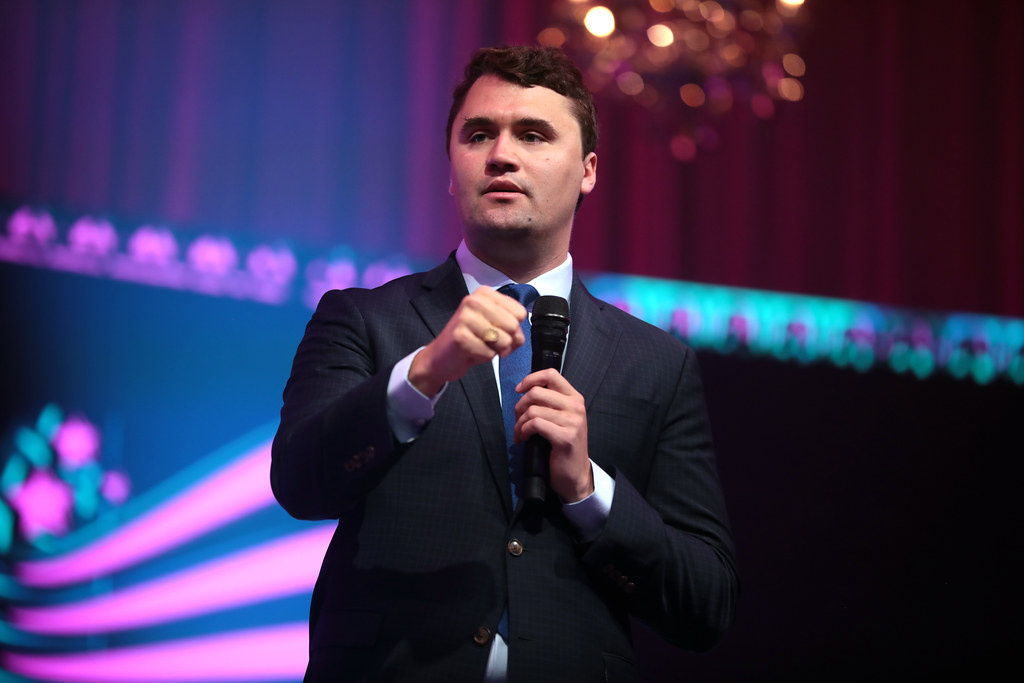
13. **The Investigation into Tyler Robinson’s Connections and Online Groups**Following Tyler Robinson’s arrest, federal authorities broadened their investigation into Charlie Kirk’s assassination, seeking to determine if pro-trans online groups or other individuals connected with Robinson had prior knowledge of the plot. Law enforcement sources indicated that investigators are examining leftist groups, both in Utah and online, to ascertain any potential assistance or foreknowledge regarding the shooting.
This expanded probe includes scrutiny of groups within the online gaming community Steam, as well as a pro-trans organization named Armed Queers SLC. The latter group, whose Instagram page was notably taken down after Kirk’s death, had previously hosted a “queer resistance” lecture at the University of Utah in September 2023, approximately 45 miles from where Kirk was killed. Flyers promoting this event, in partnership with a self-described “leftist student organization” Mecha de U of U, depicted a young woman with ammo belts and an AK-47, featuring a prominent hammer and sickle alongside a rainbow flag, and included the words “agitate, educate, organize.”
Further details emerging from the investigation point to Robinson’s alleged radicalization by far-left politics and specific internet subcultures. An interview with Voyage Utah last year quoted a representative for Armed Queers SLC expressing “commitment to something much bigger than ourselves, to people’s struggles against racism, transphobia, and capitalism,” signifying their ideological stance. This information, alongside Robinson’s mother’s account to police that her son had become more “pro-gay and trans-rights oriented” within the last year, provides additional context to his evolving views and potential ideological influences.
Moreover, a series of disturbing, though unverified, social media posts have come under scrutiny for appearing to hint at prior knowledge of Kirk’s assassination. Screenshots of since-deleted or privatized accounts show posts made the day before the shooting, with one user writing, “Charlie kirk is coming to my college tomorrow i rlly hope someone evaporates him literally,” followed by “Lets just say something big will happen tomorrow” accompanying a meme of a grinning dog. Another widely-shared archived post from a TikTok user appearing to be made a day before the shooting used ominous music and video with the disturbing text, “charles james kirk. mr. college dropout does NOT know what’s coming tomorrow. be ready… This isn’t a threat it’s a promise.” These online breadcrumbs are being investigated to determine if Robinson acted alone or had accomplices.
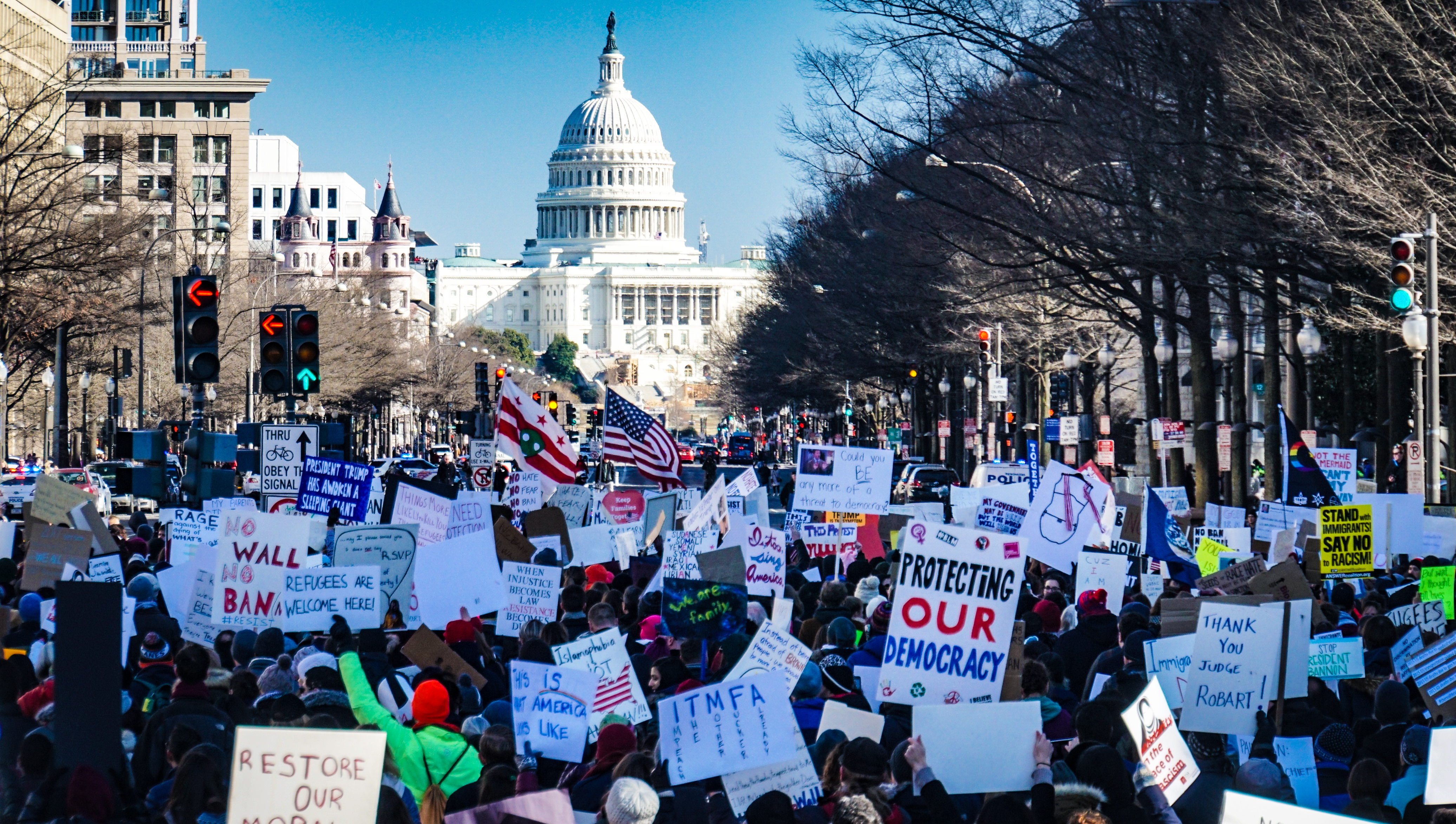
14. **Confronting America’s Gun Epidemic and Political Polarization**Amidst the swirling currents of misinformation and political maneuvering following Charlie Kirk’s assassination, advocacy groups have consistently emphasized the urgent need to redirect national attention toward America’s pervasive gun epidemic. GLAAD, an LGBTQ media advocacy organization, articulated this concern by stating, “The more the conversation shifts toward the orientation or gender of the suspect and those tangential to the suspect, the less the conversation is about guns, an epidemic killing 47,000 Americans, including thousands of children, every year.” This perspective highlights how identity-based distractions detract from the fundamental issue of gun violence.
Brandon Wolf, drawing from his experience as a Pulse nightclub survivor, asserted that “gun violence should never be normal in this country,” emphasizing that the “never-ending livestream of gun violence” is profoundly disturbing and contributes to a dangerous desensitization within society. He argued that the true measure of a democracy and American freedom should not be defined by such widespread violence, and that prioritizing public safety requires a collective refusal to accept gun violence as an unavoidable norm.
Cathy Renna also echoed the sentiment regarding media responsibility in this context, criticizing how “editors and producers make decisions every single day that impact us, and too often they’re choosing speed over accuracy, headlines over accountability.” She characterized this as not just “sloppy journalism” but “irresponsible,” highlighting that such practices directly endanger people and undermine the public’s trust in credible information. The focus on sensational narratives over verified facts ultimately obstructs meaningful dialogue about societal solutions.
The assassination of Charlie Kirk, while a tragedy, should have prompted an earnest national reckoning with gun violence and the escalating political extremism that often fuels it. Instead, the discourse was largely captured by misinformation and the scapegoating of a vulnerable community, diverting focus from a public health crisis that claims thousands of lives annually. As Wolf passionately concluded, “Political violence is never the answer. We don’t defeat hate by doubling down on it. If we want to end the cycle, we have to commit ourselves to building something better,” underscoring the imperative for constructive action over divisive rhetoric.
Ultimately, this incident serves as a stark reminder of the precarious state of information in the digital age and the profound ethical obligations of the media. For transgender people, the consequences of reckless reporting and opportunistic politics are not abstract; they are deeply personal and potentially deadly. Until both media leaders and the public collectively demand greater accuracy, accountability, and a genuine commitment to addressing the root causes of violence, communities like the transgender community will continue to bear the disproportionate brunt of a deeply flawed public discourse. The path forward requires a shared dedication to truth, empathy, and a steadfast focus on solutions that genuinely protect all members of society.

